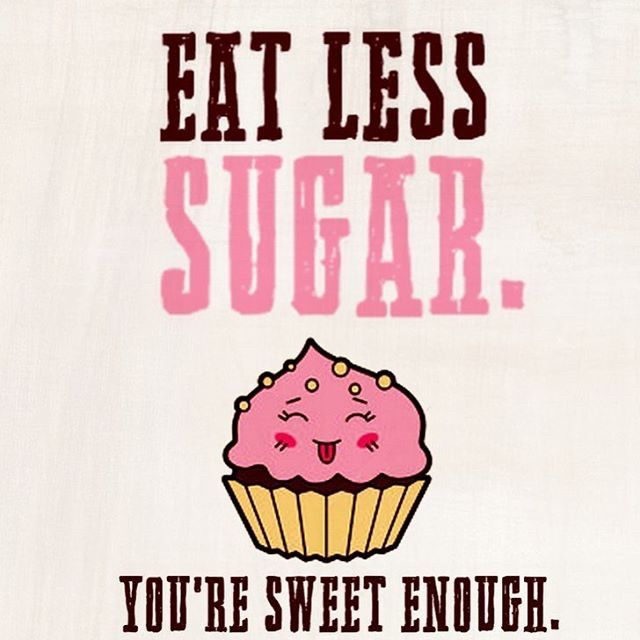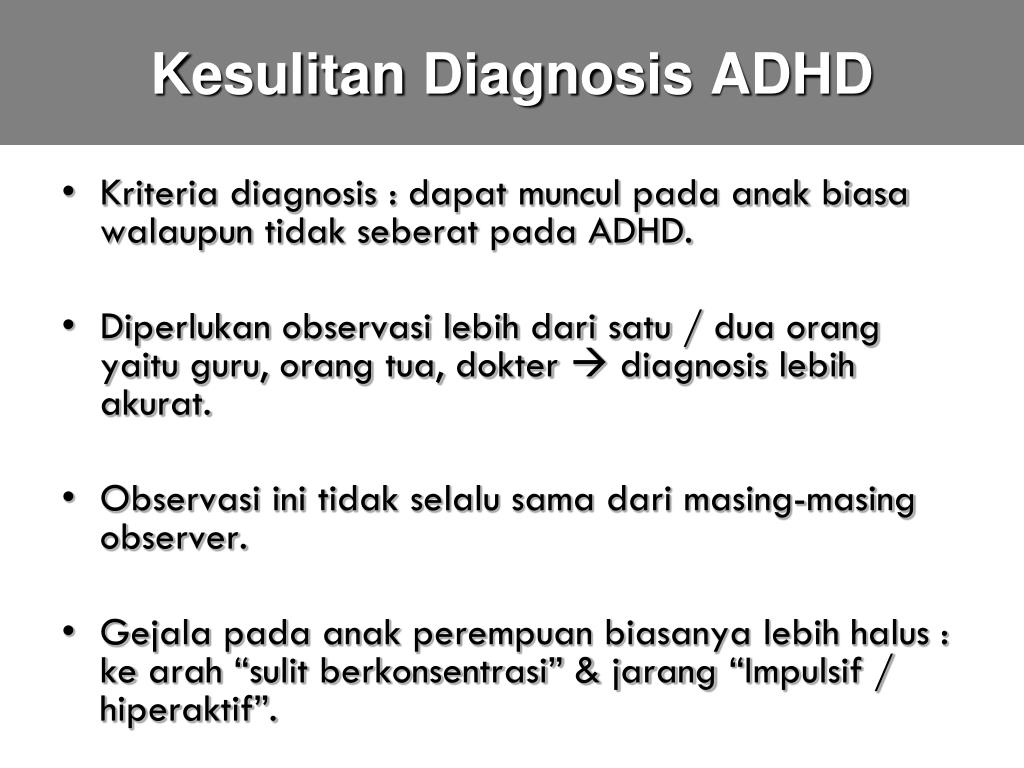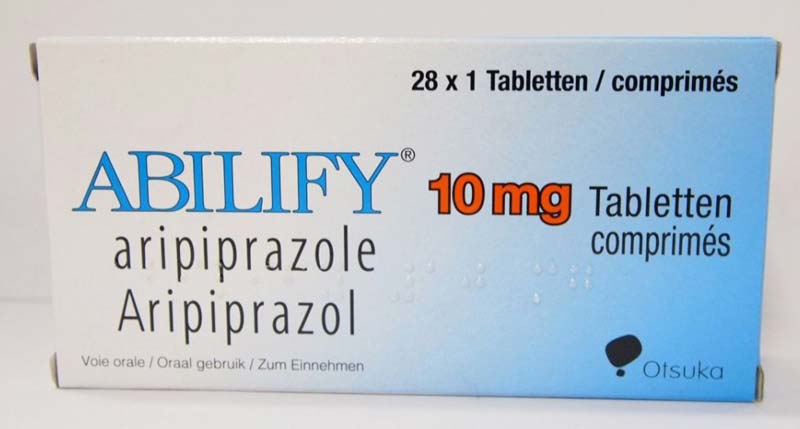Stop food craving
11 Ways to Stop Cravings for Unhealthy Foods and Sugar
Food cravings are the dieter’s worst enemy.
These are intense or uncontrollable desires for specific foods, stronger than normal hunger.
The types of foods that people crave are highly variable, but these are often processed junk foods that are high in sugar.
Cravings are one of the biggest reasons why people have problems losing weight and keeping it off.
Here are 11 simple ways to prevent or stop unhealthy food and sugar cravings.
1. Drink Water
Thirst is often confused with hunger or food cravings.
If you feel a sudden urge for a specific food, try drinking a large glass of water and wait a few minutes. You may find that the craving fades away, because your body was actually just thirsty.
Furthermore, drinking plenty of water may have many health benefits. In middle-aged and older people, drinking water before meals can reduce appetite and help with weight loss (1, 2, 3).
SummaryDrinking water before meals may reduce cravings and appetite, as well as help with weight loss.
2. Eat More Protein
Eating more protein may reduce your appetite and keep you from overeating.
It also reduces cravings, and helps you feel full and satisfied for longer (4).
One study of overweight teenage girls showed that eating a high-protein breakfast reduced cravings significantly (5).
Another study in overweight men showed that increasing protein intake to 25% of calories reduced cravings by 60%. Additionally, the desire to snack at night was reduced by 50% (6).
SummaryIncreasing protein intake may reduce cravings by up to 60% and cut the desire to snack at night by 50%.
3. Distance Yourself From the Craving
When you feel a craving, try to distance yourself from it.
For example, you can take a brisk walk or a shower to shift your mind onto something else.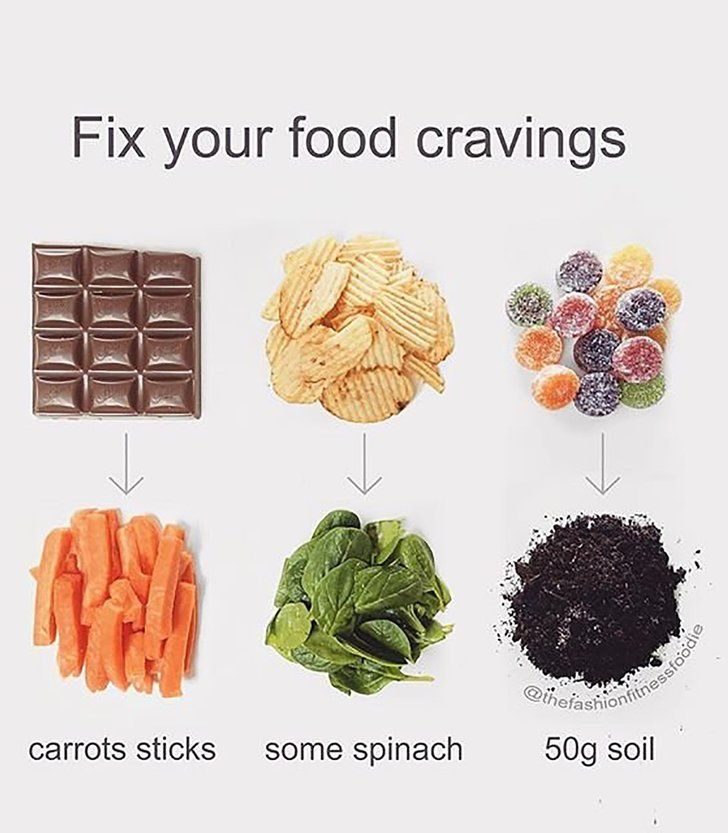 A change in thought and environment may help stop the craving.
A change in thought and environment may help stop the craving.
Some studies have also shown that chewing gum can help reduce appetite and cravings (7, 8).
SummaryTry to distance yourself from the craving by chewing gum, going on a walk or taking a shower.
4. Plan Your Meals
If possible, try to plan your meals for the day or upcoming week.
By already knowing what you’re going to eat, you eliminate the factor of spontaneity and uncertainty.
If you don’t have to think about what to eat at the following meal, you will be less tempted and less likely to experience cravings.
SummaryPlanning your meals for the day or upcoming week eliminates spontaneity and uncertainty, both of which can cause cravings.
5. Avoid Getting Extremely Hungry
Hunger is one of the biggest reasons why we experience cravings.
To avoid getting extremely hungry, it may be a good idea to eat regularly and have healthy snacks close at hand.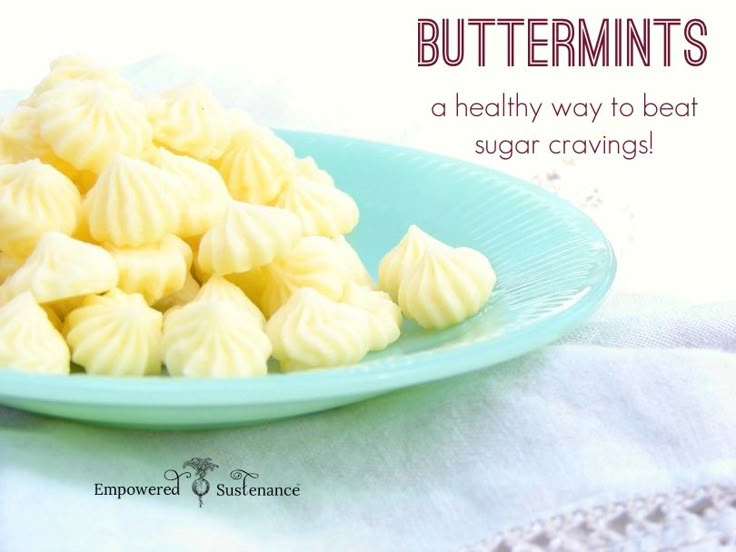
By being prepared, and avoiding long periods of hunger, you may be able to prevent the craving from showing up at all.
SummaryHunger is a big reason for cravings. Avoid extreme hunger by always having a healthy snack ready.
6. Fight Stress
Stress may induce food cravings and influence eating behaviors, especially for women (9, 10, 11).
Women under stress have been shown to eat significantly more calories and experience more cravings than non-stressed women (12).
Furthermore, stress raises your blood levels of cortisol, a hormone that can make you gain weight, especially in the belly area (13, 14).
Try to minimize stress in your environment by planning ahead, meditating and generally slowing down.
SummaryBeing under stress may induce cravings, eating and weight gain, especially in women.
7. Take Spinach Extract
Spinach extract is a “new” supplement on the market, made from spinach leaves.
It helps delay fat digestion, which increases the levels of hormones that reduce appetite and hunger, such as GLP-1.
Studies show that taking 3.7–5 grams of spinach extract with a meal may reduce appetite and cravings for several hours (15, 16, 17, 18).
One study in overweight women showed that 5 grams of spinach extract per day reduced cravings for chocolate and high-sugar foods by a whopping 87–95% (18).
SummarySpinach extract delays the digestion of fat and increases the levels of hormones that can reduce appetite and cravings.
8. Get Enough Sleep
Your appetite is largely affected by hormones that fluctuate throughout the day.
Sleep deprivation disrupts the fluctuations, and may lead to poor appetite regulation and strong cravings (19, 20).
Studies support this, showing that sleep-deprived people are up to 55% more likely to become obese, compared to people who get enough sleep (21).
For this reason, getting good sleep may be one of the most powerful ways to prevent cravings from showing up.
SummarySleep deprivation may disrupt normal fluctuations in appetite hormones, leading to cravings and poor appetite control.
9. Eat Proper Meals
Hunger and a lack of key nutrients can both cause certain cravings.
Therefore, it’s important to eat proper meals at mealtimes. This way, your body gets the nutrients it needs and you won’t get extremely hungry right after eating.
If you find yourself in need of a snack between meals, make sure it’s something healthy. Reach for whole foods, such as fruits, nuts, vegetables or seeds.
SummaryEating proper meals helps prevent hunger and cravings, while also ensuring that your body gets the nutrients it needs.
10. Don’t Go to the Supermarket Hungry
Grocery stores are probably the worst places to be when you are hungry or have cravings.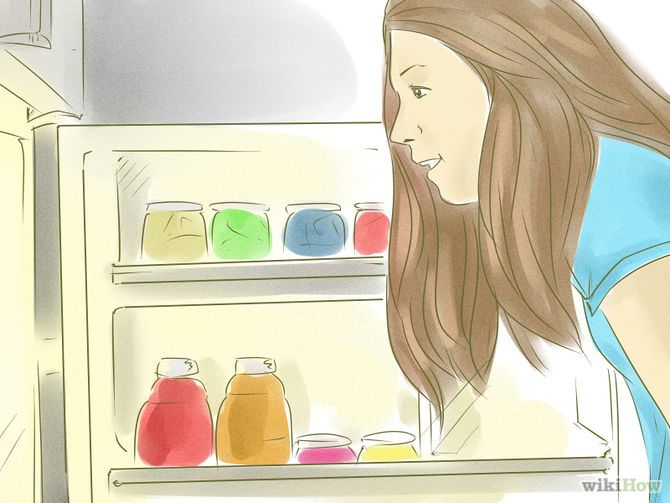
First, they give you easy access to pretty much any food you could think of. Second, supermarkets usually place the unhealthiest foods at eye level.
The best way to prevent cravings from happening at the store is to shop only when you’ve recently eaten. Never — ever — go to the supermarket hungry.
SummaryEating before you go to the supermarket helps reduce the risk of unwanted cravings and impulsive buying.
11. Practice Mindful Eating
Mindful eating is about practicing mindfulness, a type of meditation, in relation to foods and eating.
It teaches you to develop awareness of your eating habits, emotions, hunger, cravings and physical sensations (22, 23).
Mindful eating teaches you to distinguish between cravings and actual physical hunger. It helps you choose your response, instead of acting thoughtlessly or impulsively (24).
Eating mindfully involves being present while you eat, slowing down and chewing thoroughly.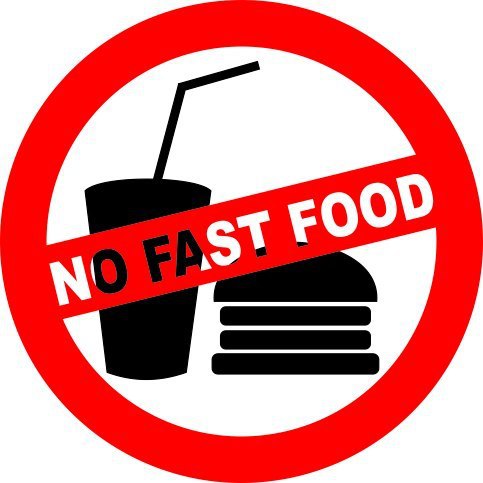 It is also important to avoid distractions, like the TV or your smartphone.
It is also important to avoid distractions, like the TV or your smartphone.
One 6-week study in binge eaters found that mindful eating reduced binge eating episodes from 4 to 1.5 per week. It also reduced the severity of each binge (25).
SummaryMindful eating is about learning to recognize the difference between cravings and actual hunger, helping you choose your response.
The bottom line
Cravings are very common. In fact, more than 50% of people experience cravings on a regular basis (26).
They play a major role in weight gain, food addiction and binge eating (27).
Being aware of your cravings and their triggers makes them much easier to avoid. It also makes it a lot easier to eat healthy and lose weight.
Following the tips on this list, such as eating more protein, planning your meals, and practicing mindfulness, may allow you to take charge next time cravings try to take over.
12 Effective Ways to Manage Food Cravings
If you sometimes experience food cravings or an irresistible desire to eat specific foods, rest assured that you’re not alone.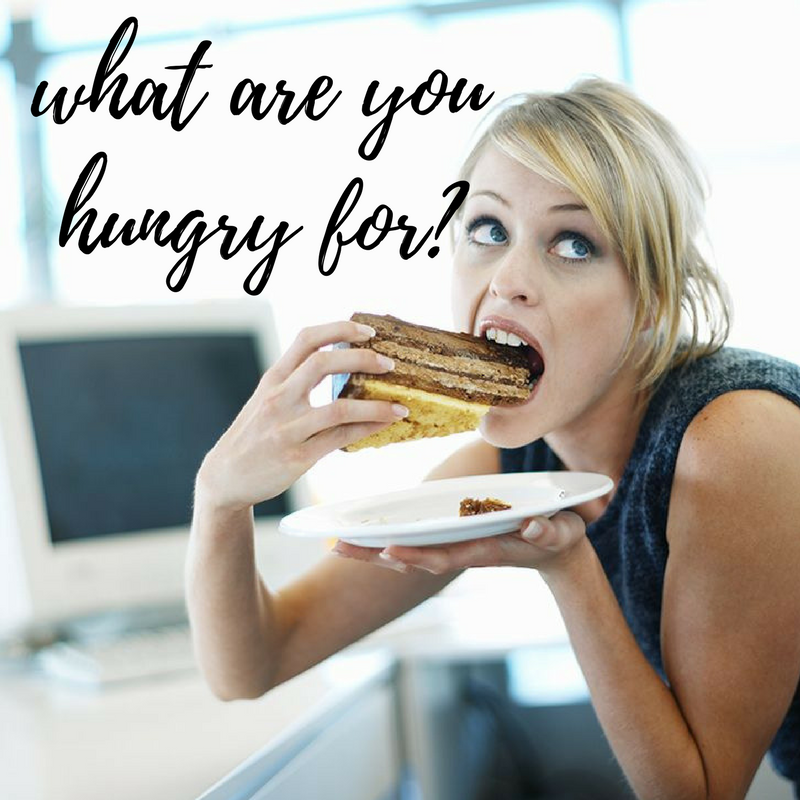 In fact, it’s estimated that over 90% of the world’s population gets food cravings (1).
In fact, it’s estimated that over 90% of the world’s population gets food cravings (1).
These cravings can be hard to ignore, potentially leading you to consume excessive amounts of calorie-dense, nutrient-poor, and highly palatable foods like chocolate, cake, ice cream, and pizza. Unfortunately, these excess calories and processed foods can harm your health (2).
If you worry that you experience more food cravings than others or your cravings often bother you, several reasons can explain why, and there are several ways to combat them.
This article shares 12 effective, evidence-based ways to manage food cravings.
It’s important to fuel your body properly to keep it healthy and functioning at its best.
Without enough calories and nutrients, it’s natural that your body signals you to eat, which can cause strong cravings for certain foods.
While the relationship between calorie intake and food cravings is complex, some research suggests that calorie restriction — at least in the short term — can increase cravings (2).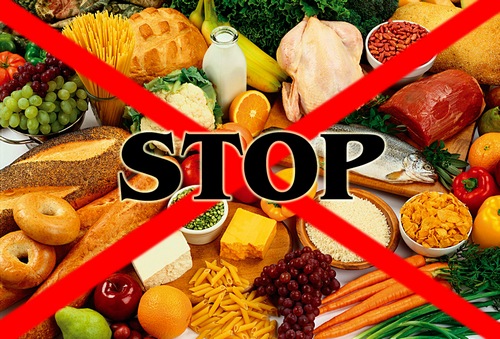
On the other hand, long-term calorie restriction may be associated with less overall and specific food cravings (3).
Regardless, consistently fueling your body with healthy, filling foods and making sure you’re not overly restricting calories may help decrease food cravings.
Picture kicking off a new diet, feeling ready to change your eating patterns and reach new health goals. Unfortunately, just hours or days later, you get stronger and stronger cravings for all the foods you cannot eat.
If this sounds familiar, rest assured that it’s completely normal. Many diets are overly restrictive, and this can lead to increased food cravings. In fact, some studies suggest that people on diets are likely to experience more frequent food cravings than people who aren’t on diets.
For example, a 2012 study including 129 women found that those who were dieting to lose weight experienced significantly more food cravings than women who weren’t dieting. Plus, their food cravings were more intense (4).
In fact, it’s believed that restrained eating and perceived deprivation play a large role in food cravings.
A 2020 review of 8 studies on food deprivation found that in 7 of the studies, food deprivation increased cravings for foods that were perceived as off-limits (2).
Therefore, while losing excess body fat may improve your overall health, it’s important to avoid overly restrictive diets to keep food cravings at bay. Instead, focus on developing an eating pattern that properly nourishes your body and lets you enjoy your favorite foods on occasion.
Although hunger is a natural body cue that shouldn’t be feared, letting yourself get too hungry might increase the risk of strong food cravings.
From your body’s point of view, this makes perfect sense.
When you’re feeling ravenously hungry, it’s likely that you haven’t fueled your body for a long time. As a result, your blood sugar levels may be low, and your body will direct you to consume high energy foods to get those levels back up into the normal range (5).
On the other hand, when your blood sugar levels are stable, you’re less likely to have strong food cravings.
Fortunately, you don’t have to stringently eat every couple of hours to keep your blood sugar levels steady. Rather, simply pay attention to your hunger and fullness cues and feed your body when it needs fuel.
A simple way to keep cravings in check, feel fuller for longer, and stabilize your blood sugar levels is to enjoy foods that promote feelings of fullness. All three macronutrients — fat, carbs, and protein — are important for keeping you feeling full.
That said, protein is the most filling macronutrient. In fact, many studies have demonstrated that eating more of this nutrient helps manage food cravings.
For example, high protein diets have been shown to reduce the activation of areas in the brain associated with food rewards and cravings, reduce nighttime snacking on sugary, high calorie foods, and decrease food cravings (6, 7, 8).
In other words, pairing protein-rich foods with healthy fats and fiber-rich carbs is essential for promoting fullness.
It’s a great idea to plan ahead and make sure you have access to meals and snacks that are rich in fiber, protein, and healthy fats to promote feelings of fullness and decrease cravings.
Simple, balanced ideas include pairing an apple with nut butter or a bit of cheese, or having a hard-boiled egg with some veggies and hummus.
Besides taking up time, effort, and mental energy, being overly preoccupied with calories can cause you to severely restrict your overall energy intake and avoid foods that you enjoy.
While tracking food intake can be helpful for some people on a short-term basis, consistently obsessing about how many calories you consume can harm your relationship with food and cause unnecessary stress.
Counteractively, by overly restricting certain foods or limiting your food intake to suit a certain calorie goal, you can end up feeling strong food cravings and overeating later.
If you’re struggling with obsessive calorie counting, overly restricting food intake, or food cravings, seek help from a qualified healthcare provider like a registered dietitian.
To promote overall health, manage your weight, and feel your very best, it’s important to limit your intake of certain foods, such as those high in added sugar and ultra-processed products like fast food.
However, restricting or completely avoiding certain foods may make you crave them even more, potentially causing you to eat even more of them down the line once the desire gets irresistible (2).
Fortunately, your favorite foods can be a part of your diet — even if they’re not the healthiest, and even if you’re trying to lose excess body fat. In fact, studies have shown that being more flexible and less rigid in your dietary choices may boost weight loss.
A 6-month 2018 study among 61 women with overweight or obesity found that those who were more flexible with their dietary choices lost more weight than those with rigid eating behaviors (9).
This is great news, demonstrating that your favorite treats can fit into a healthy dietary pattern. For example, flexibility can mean enjoying a dessert when out to dinner, having a piece or two of chocolate after lunch, or making your favorite pasta dish for dinner.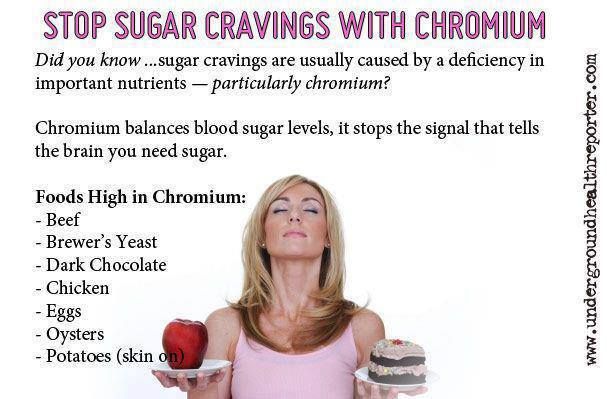
Your blood sugar can fluctuate when it has been a while since you last ate. This can lead to food cravings, especially for carb-rich foods, so it makes perfect sense if you desire things like crackers, french fries, chocolate, or bread when you’re feeling hungry.
In a 2013 study including 210 people with and without type 2 diabetes, having unmanaged blood sugar levels was associated with carb cravings. Plus, these cravings declined with improved blood sugar management (10).
That’s no surprise. When your blood sugar gets low, for example, if you’ve intentionally or unintentionally gone an extended time without eating, your body activates areas in your brain that promote cravings for high calorie foods (5, 11).
If you’ve noticed that you typically get cravings during a certain time of day, it may mean that you’re not optimally managing your blood sugar levels or fueling your body.
If you find yourself thinking of or reaching for certain foods during times of stress, you’re not alone. Many studies have linked stress to increased food cravings.
Many studies have linked stress to increased food cravings.
For example, a 2015 study in 619 people found that chronic stress significantly and directly affected food cravings (12).
This could be because chronic stress harms bodily systems and hormone levels related to appetite control (12, 13, 14).
Chronic stress is also associated with a greater risk of developing overweight or obesity (12, 15).
If you feel stressed, try out some of these stress-relieving tips to see if they help you relax and leave some of your cravings behind. Also, don’t be afraid to seek help or counsel from a health care professional.
Interestingly, you’re more likely to experience food cravings after a night with too little shut-eye.
A 2019 study including 256 children and teens associated poor sleep with more frequent food cravings and worse diet quality (16).
Another 2019 study including 24 women associated sleep deprivation with increased hunger and food cravings (17).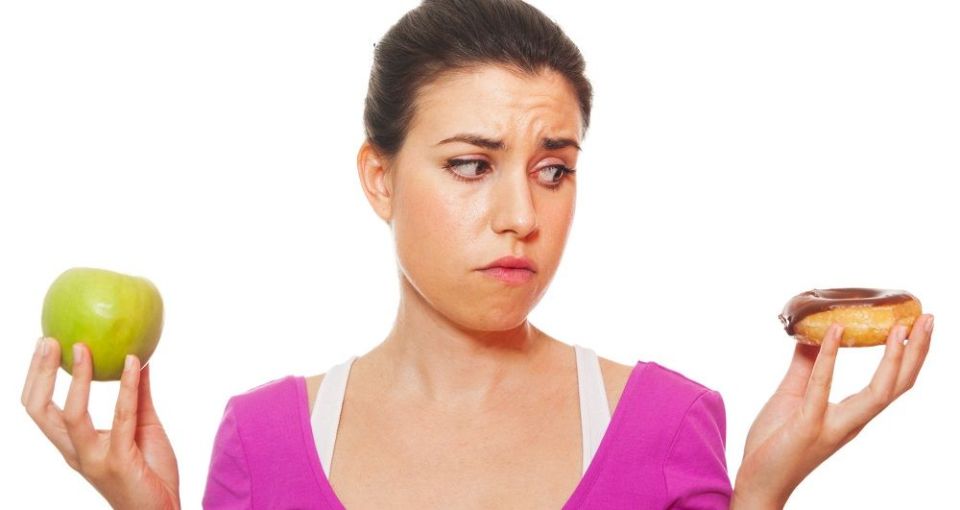
A lack of sleep affects certain areas of your brain, including the frontal cortex and amygdala, which can significantly increase your desire for highly palatable and calorie-rich foods (18).
Worryingly, chronic sleep deprivation has also been linked to health conditions like diabetes, heart disease, and depression (19, 20, 21).
To counteract sleep-deprivation-associated food cravings and promote overall health, aim to get at least 7 hours of sleep per night (20).
Check out this article for some practical tips to help you doze off.
Some research suggests that eating less highly refined carbs may combat your food cravings.
This could be because a diet rich in highly refined carbs, which significantly affects your blood sugar levels, may trigger brain responses that drive cravings for highly palatable foods (22).
A small 2019 study found that adults who followed a 4-week low carb diet comprising 14% carbs, 58% fat, and 28% protein had significantly fewer food cravings than before they started the diet (23).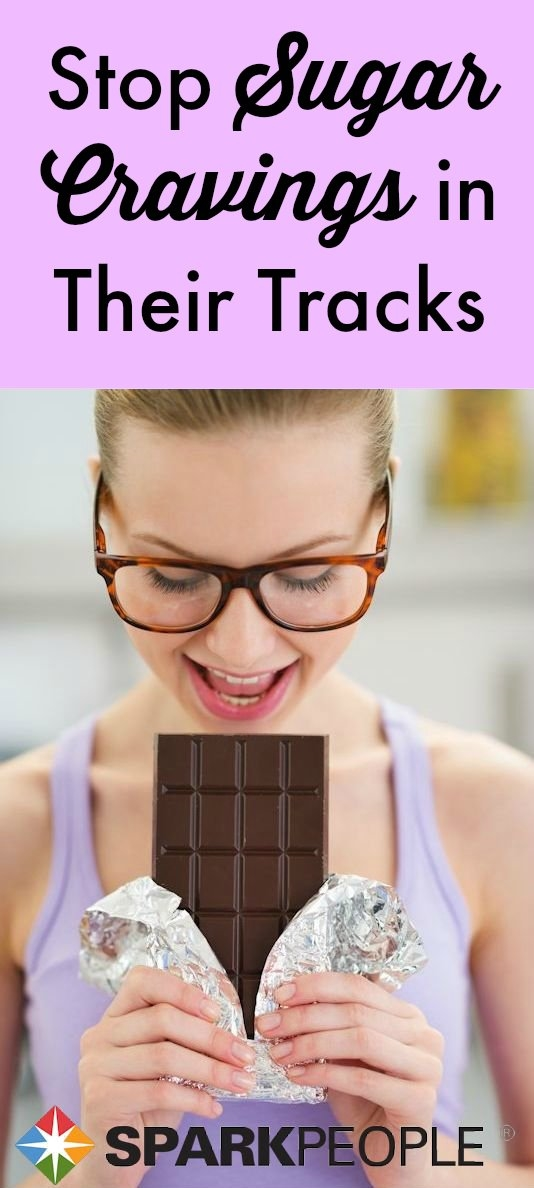
Other studies similarly suggest that low carb diets can reduce food cravings, including cravings for high carb sugary foods (24, 25).
Not to worry, though — this doesn’t mean you have to follow a low carb diet, or any special diet for that matter, to manage your food cravings.
Instead, simply focus on eating less ultra-processed carb items that are high in added sugar, such as cakes and candy. Replace them with high fiber, nutrient-dense carbs like sweet potatoes, oats, and butternut squash for filling, wholesome alternatives.
Oftentimes, eating highly palatable foods like sweetened baked goods, ice cream, pizza, and doughnuts may drive food cravings.
A 2014 study in 646 people observed that the more sweets, high fat foods, and fast foods the participants ate, the more they craved those same foods (26).
Similarly, a 2018 review found that eating less of the foods you often crave may reduce cravings for those foods (27).
Studies also suggest that the more highly palatable foods you eat, the fewer reward responses your brain experiences. This can create stronger cravings, leading you to eat even more highly palatable foods to compensate (28).
This can create stronger cravings, leading you to eat even more highly palatable foods to compensate (28).
For these reasons, cutting back on highly palatable foods like ice cream, fast food, boxed mac and cheese, cookies, or candy — whichever foods you often crave — may be a long-term way to reduce craving frequency.
It probably comes as no surprise that maintaining a healthy body weight is important for your overall health. Yet, what you might not realize is that it may also reduce food cravings.
In fact, research has linked a higher body weight to a greater frequency of food cravings.
In the previously mentioned 2014 study in 646 people, participants with a higher BMI — an indication of body weight in relation to height — had more food cravings than people with BMIs considered normal (26).
Additionally, in a 2019 study in 100 people, those with overweight reported more frequent cravings for highly palatable foods than people of weights considered to be normal (29).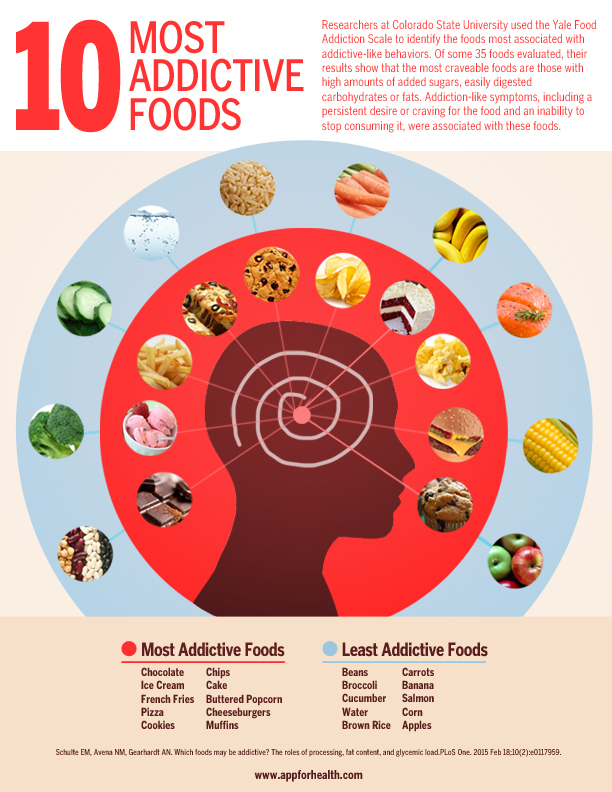
Plus, maintaining a healthy body weight can reduce your risk of certain chronic diseases, improve your body image, benefit your mental health, and more, to keep you feeling your very best (30, 31, 32).
Rest assured that food cravings are normal and experienced by almost everyone.
Unfortunately, frequent cravings may lead to overeating — oftentimes involving nutrient-poor foods — and harm your health.
Trying out some of the evidence-based tips listed above, including getting enough sleep, avoiding restrictive diets, eating nutrient-dense foods, and reducing your stress levels, may help you manage food cravings.
If you’re experiencing frequent food cravings that you cannot overcome, work with a registered dietitian to discover why. Together, you can come up with an appropriate plan to manage food cravings in a healthy, sustainable manner.
Just one thing
Try this today: Hi, the Initial Editor here! I find that a filling high protein snack with both sweet, salty, crunchy, and creamy components keeps my pesky cravings at bay until my next meal.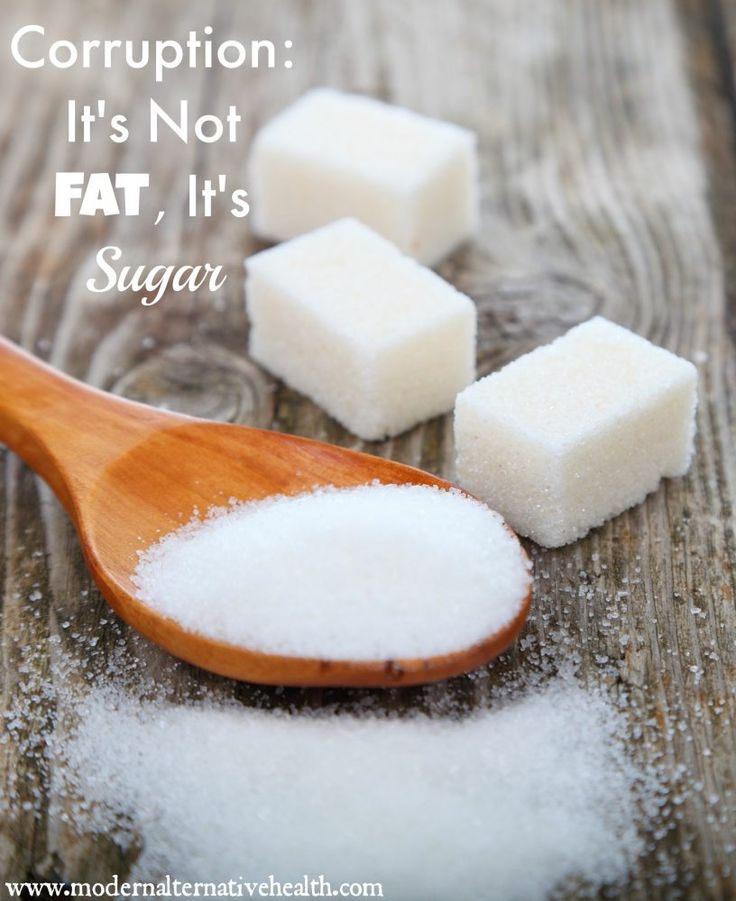 I recommend pairing full fat Greek yogurt with diced apple, a pinch of cinnamon, and drizzle of nut butter. Why not give this a try next time you feel like a treat?
I recommend pairing full fat Greek yogurt with diced apple, a pinch of cinnamon, and drizzle of nut butter. Why not give this a try next time you feel like a treat?
How to eat less - expert advice
According to recent research, you can actually tune your brain to keep temptation under control. Health.com explains how. Here you are sitting at the table during the working day, and suddenly, out of nowhere, you have a desire - no, rather a need - to eat a huge sweet bun. And now you have already increased salivation, just you thought of sweet glaze, butter and cinnamon. Is it just your imagination or is it true that your heartbeat has increased?
WILLPOWER
That's when the deal starts: I'll just have a bite to eat, and I'll put the rest aside. Or maybe I'll eat half - I was good today - no, I'll eat everything, but I won't eat in the evening ...
Craving for food. Research is just beginning to shed light on why so many of us succumb to it. Although it is still a mystery to scientists what exactly happens when you are in a state of craving, they know for sure: every craving begins with a signal. The cue for a sweet bun can be something as simple as feeling its buttery aroma as you walk past your favorite bakery, or catching a glimpse of a commercial. "Any signal that is repeatedly associated with high-fat or sugary foods can trigger cravings," explains Ashley Gearhardt, Ph.D., psychologist and food addiction expert at Yale University's Center for Food Policy and Obesity.
Although it is still a mystery to scientists what exactly happens when you are in a state of craving, they know for sure: every craving begins with a signal. The cue for a sweet bun can be something as simple as feeling its buttery aroma as you walk past your favorite bakery, or catching a glimpse of a commercial. "Any signal that is repeatedly associated with high-fat or sugary foods can trigger cravings," explains Ashley Gearhardt, Ph.D., psychologist and food addiction expert at Yale University's Center for Food Policy and Obesity.
In other words, if you love celebrating the end of the week with a beer or a margarita, eventually you will automatically crave it every Friday. If you grew up subconsciously associating comfort with your mother's pies or charlotte, then you're more likely to crave it whenever you're having a bad day.
The signal activates the brain's pleasure center, causing it to release dopamine, a neurotransmitter that pushes you to seek out exactly what you most desire, explains Gearhardt.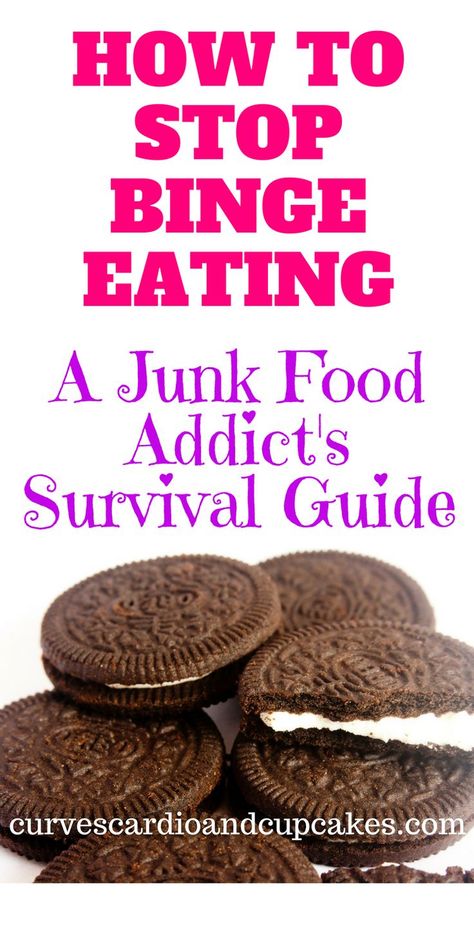 Over time, this experience of pleasure will again signal to the brain, and you will most likely gravitate towards this food again in the future.
Over time, this experience of pleasure will again signal to the brain, and you will most likely gravitate towards this food again in the future.
What's more, when you're in addiction mode, your brain convinces you that you're hungry, making it even harder for you to resist eating. "Your brain starts pumping out ghrelin, the hunger hormone, and insulin levels drop, making you even more hungry than usual," says Gearhardt. As a result, it is very difficult to satisfy cravings with taste alone.
It seems unfair that cravings can increase hunger. You assume that you will satisfy your cravings for a sweet bun by eating one, but research shows that just the opposite will happen: instead of paying attention to the physical signals of hunger and satiety, you will be driven by a rush of dopamine that will make you look for a sweet bun ( right now!). And then another.
It also explains why it becomes hard for you to resist dessert, even if you just ate a steak with a side dish and bread.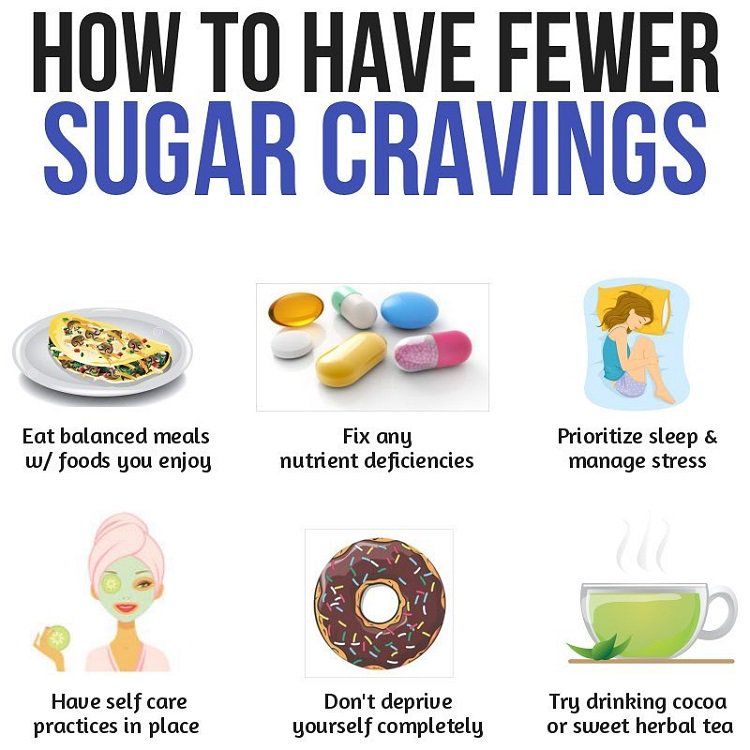 "Dessert and the spoons and forks placed in front of you are signals that you should eat," says Mark Gold, MD, chairman of the Department of Psychiatry at the University of Florida, an addiction medical researcher.
"Dessert and the spoons and forks placed in front of you are signals that you should eat," says Mark Gold, MD, chairman of the Department of Psychiatry at the University of Florida, an addiction medical researcher.
The dopamine signal comes immediately as soon as you encounter a stimulus, but the satiety signal that tells you to stop eating comes much more slowly, 12 or more minutes after eating. "Your brain can always find more room for food, and even after a while, so can your stomach," adds Dr. Gold.
YOUR BRAIN AND CAKES
Believe it or not, traction originally served a useful purpose, namely to keep our loincloth-wearing ancestors alive. "They had a big craving for high-calorie foods that they had to get their hands on to survive and reproduce," says Eric Stice, Ph.D., senior researcher at the Oregon Research Institute.
Of course, our predecessors didn't face high-calorie temptations at every turn. Today, we are simply occupied by grocery advertising (on average, we watch 7,000 food and drink ads on TV per year).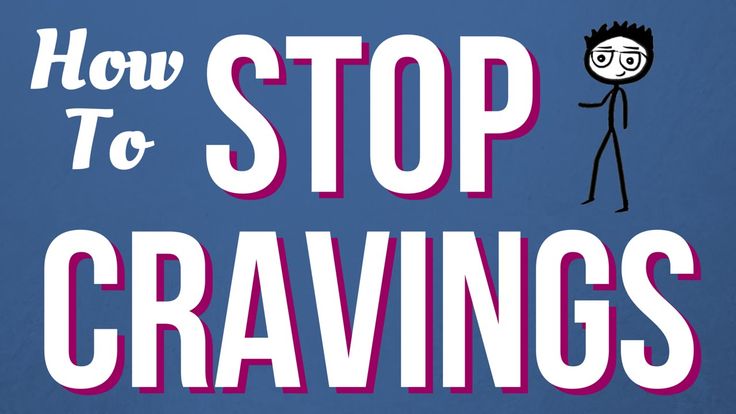 And we don't have to spend our lives foraging for food every time we get hungry. We just open the locker while in the office, use the vending machine, or go to the store.
And we don't have to spend our lives foraging for food every time we get hungry. We just open the locker while in the office, use the vending machine, or go to the store.
Not only are these high-fat, high-sugar, and sodium foods convenient, but they're actually designed specifically to make us addicted. "These foods have an effect on the brain that is much stronger than from products obtained by hunting or farming," says Dr. Gold. "Fast food like french fries provides more dopamine than a fresh tomato from your garden."
It's just the complexity of flavors, aromas and textures that processed foods stimulate the brain more than earth-grown foods, he explains. Plus, you get a dopamine rush every time you try a different flavor, so you enjoy it over and over again.
"The fact that you can have a hamburger today, a burrito tomorrow, and chicken wings the day after tomorrow means we live in a sea of dopamine stimulants," says Dr. Gold.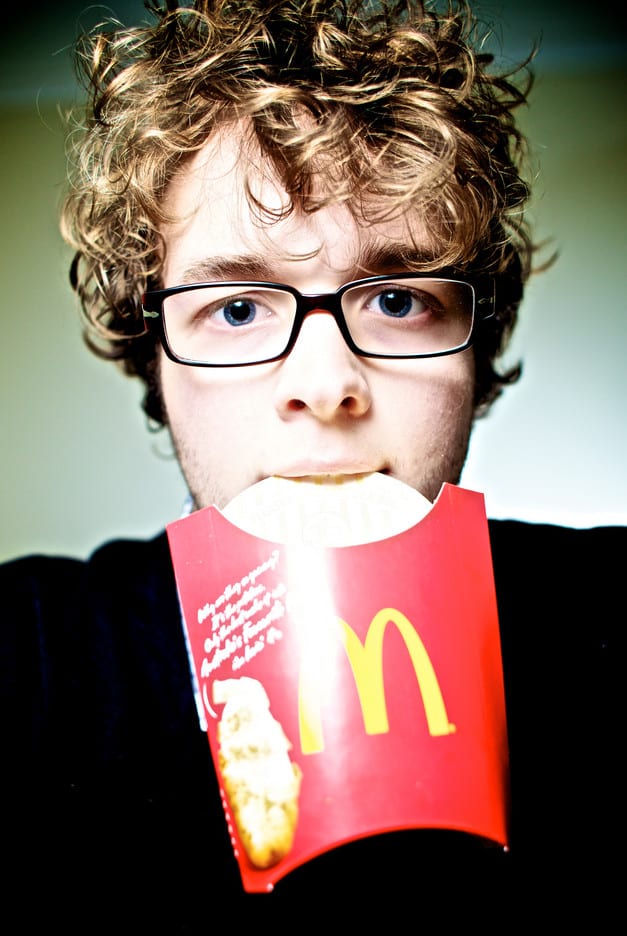
BORN TO LOVE CHIPS
This explains part of the puzzle, but not all. New research suggests that your eating habits—thus your cravings—may have been formed not only in childhood, but also in the womb. "One theory is that pregnant women begin teaching their children what is safe and healthy to eat while they are still in the womb," says Annie Murphy Paul, author of How the Nine Months Before Birth Shape the Rest of Our Lives". So if your mom ate a lot of chips and french fries, you might be programmed to crave the same kind of fatty, salty food.
Moreover, if you associate certain foods with pleasant moments from your childhood, then most likely, by desiring these foods, you want to receive positive emotions. This is due to the fact that most often we crave not the products themselves, but the emotions that we associate with them. In other words, you want to get not only your mom's chocolate cake, but also the warm feelings that you had when she gave you a piece of cake.
“By associating foods with specific feelings or situations, we create associations between experience and food,” explains Michelle May, MD, author of Eat What You Love, Love What You Eat. what you really want is to feel safe or remember the period of your life when everything was simple and easy. "
Emotional cravings tend to come from us because we are most often unaware of the relationship between what we eat and how we feel. For example, if you're craving a glass of wine and a helping of pasta in the middle of a busy day at work, you may not realize that you really just want to feel relaxed and carefree, like a bachelorette party at your favorite Italian bistro.
MANAGE SUDDEN HUNGER BACKS
If you can identify the emotions that cause cravings, then instead of sinking your teeth into a 500-calorie sugar bomb, you can try to find other ways to solve this problem. For example, you can schedule an e-mail meeting with your boss to discuss the tasks you have been given and the unrealistic deadlines for completing them.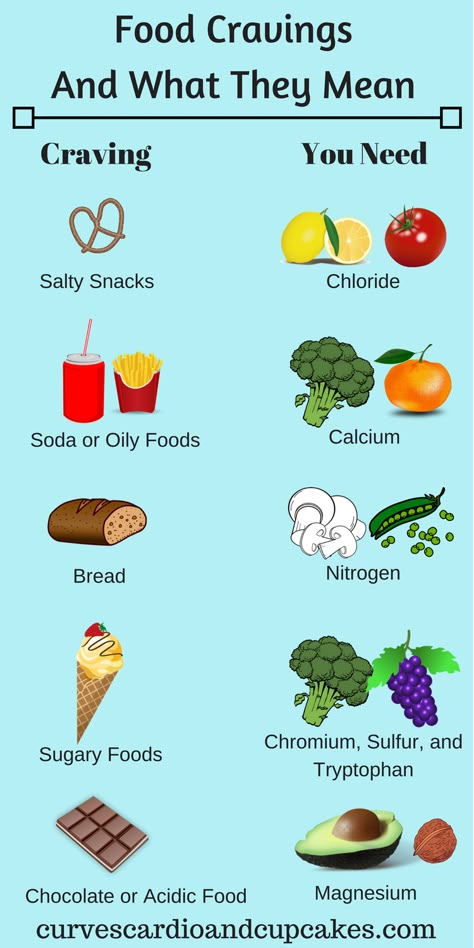
"If that doesn't seem possible, then you probably really need a vacation and waiting for it will make work more bearable," Dr. May says. "Take action to satisfy your need by taking small steps such as making a list of the top 10 places you would like to visit, taking 15 minutes to browse websites to find places you would like to go. Even the things you close your eyes and imagine that you are already on the beach, while you inhale and exhale deeply, can help you."
SMART STRATEGY
Regardless of the source of your craving (whether it's a natural cue or an emotional need), there's another powerful tactic: focus on short-term and long-term health goals.
In a recent study published in the journal Proceedings of the National Academy of Sciences, researchers studied the brains of participants during cravings using MRI and found that paying attention to goals, such as getting in shape, activates the prefrontal cortex, which prevents the area from encouragement.
This technique is very effective. In addition to dulling cravings, it also increases the ability to resist temptation. It can even save you from rationalization or self-talk.
Here's how to make it work for you: write a detailed list of the goals you want to achieve. If you are trying to lose weight, enter your current weight and how much you want to lose. "It makes sense to be more specific as you provide more detailed information that will later help you say no to yourself," says Dr. Gold.
For example, when you know that you need to lose 500 calories a day to lose a pound a week and that the ice cream you eat will interfere with this, you will already attract the prefrontal cortex and thereby stop the production of dopamine. As soon as cravings kick in, remember these numbers to fight back the urge to eat ice cream.
It's also important to log everything you eat throughout the day, especially if you're trying to lose weight.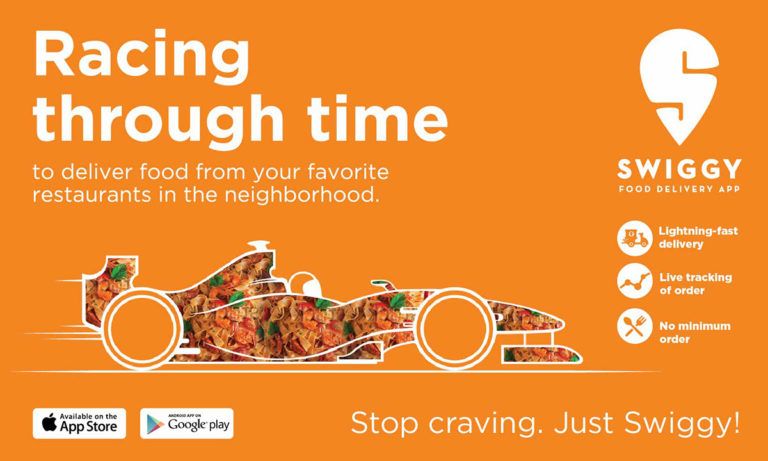 Often motivated by cravings, we tend to gorge on food and quickly forget it, adds Dr. Gold.
Often motivated by cravings, we tend to gorge on food and quickly forget it, adds Dr. Gold.
The knowledge that you will have to return to this magazine can reduce your desire to eat. "By practicing this, over time your ability to resist temptation will get stronger and stronger, as will your muscles," says Gearhardt. Your prefrontal cortex will begin to quickly stop the production of dopamine and, of course, rid you of food cravings.
Cravings for food and how to stop them
Probably everyone has had one when he could not stop eating. Especially if it's your favorite food, like pizza, ice cream, or any other favorite food. But what to do? How to overcome food cravings?Many people have a hard time resisting food cravings. But, if you apply simple but effective methods, you can easily curb food cravings.
Physical cravings for food may result from low fat intake or low blood sugar. For many people, midday cravings are just the body's way of telling the person that it's been too long since lunch and they need to eat. A piece of fruit, vegetable, or some greens can raise blood sugar levels and prevent a person from reaching for food that they crave but that is harmful and can harm the body.
A piece of fruit, vegetable, or some greens can raise blood sugar levels and prevent a person from reaching for food that they crave but that is harmful and can harm the body.
Ways to stop food cravings
If food cravings have nothing to do with a lack of food, here are some steps to stop food cravings: animal origin and so on. Replace them with healthier and healthier foods.
· Keep a food diary to keep track of the time of day and the duration of food cravings. See if there is any pattern. Then drink water and/or healthy snacks to control food cravings.
Avoid high-calorie sodas and commercially produced fruit juices (drinks) with a high sugar content. Instead, drink more water or freshly squeezed juices from fruits, berries, vegetables, and greens throughout the day.
· Instead of eating accepted standards of food, portions and type of food, replace your entire diet with healthy food ( live plant foods ) . Eat small meals, but as many times as you like. This will protect against too low blood sugar, which leads to the desire to eat sweet, salty snacks and food, as well as difficulty in resisting food cravings.
Eat small meals, but as many times as you like. This will protect against too low blood sugar, which leads to the desire to eat sweet, salty snacks and food, as well as difficulty in resisting food cravings.
Ask loved ones to help you control food cravings. Share your goals with them and ask them to support you in your efforts to stop food cravings.
How to Curb Food Cravings
If you are not physically hungry, here are a few tips from Rebecca Wilborn, director of the Midtown Diet Center in New York City to help curb food cravings:
Rinse your mouth. In part, the desire to eat something is a taste desire. Therefore, frequent rinsing of the mouth will help reduce food cravings.
Distract yourself. If there is a desire to eat something, then you can distract yourself from this desire by spending 45-60 minutes doing something interesting.
Exercise. An excellent solution is to do physical exercises or spend time in nature, doing active activities (biking, running, etc. ).
).
Relax. Deep breathing exercises or meditation will allow you to gather strength and take a more conscious look at food cravings.
· Choose healthy alternatives to junk food. If there is a desire to eat ice cream, then it can be replaced with a frozen thick fruit smoothie. It will be a great substitute for unhealthy ice cream. In this way, most unhealthy foods can be replaced.
· Listen to your passions. If there is a desire to eat something salty, then you do not need to switch to salty foods. Just salt the vegetable salad with regular salt. In this way, you will avoid the consumption of junk food, and get off with a small amount of salt consumed.
· Knowledge of trigger situations. Monitor yourself and record the situations that cause food cravings. Avoid such situations in the future if possible.
· Drink more water. Often, the appearance of hunger is a sign that the body needs water (to remove salts and other unnecessary impurities from the body).